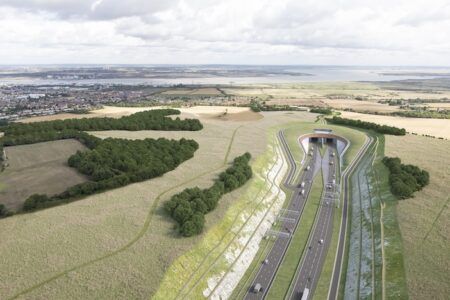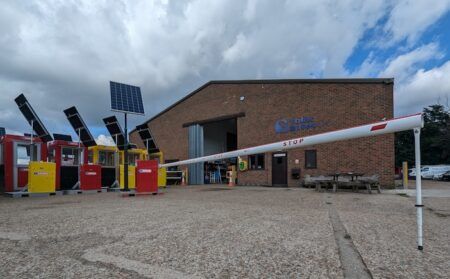National Highways is set to carry out a new research trial which could significantly reduce the carbon footprint and cost of bridge building.
The future of bridge construction could be transformed by a new trial being carried out by National Highways exploring more environmentally friendly building which could significantly reduce the carbon footprint and costs.
Through a network of sensors, the research will analyse if fewer materials are actually needed in the design, installation and maintenance of integral bridges.
Integral Bridges do not have expansion joints between spans or abutments and are often used for small to medium size bridges.
The trial will begin in the coming weeks on a new integral bridge at the Wisley Interchange as part of the M25 junction 10 improvements scheme.
An array of sensors will measure the actual strain and stress profiles within the bridge and surrounding soil.
Data will be gathered every hour and analysed over a three-year period by National Highways and AtkinsRéalis, as well as Cambridge University.
National Highways has contracted AtkinsRéalis to lead the Wisley bridge trial, in collaboration with Connect Plus Services, Balfour Beatty and Laing O’Rourke.
The trial will test if current design guidance and material specifications for integral bridges could be modified, while maintaining very rigorous safety and construction standards, and therefore reduce embodied carbon emissions and whole life costs.
Embodied carbon is the amount of carbon emitted during the construction of a building such as the extraction of raw materials, manufacturing and transporting products as well as the disposal of old materials.

National Highways head of research, Phillip Proctor, says: “We are consistently looking for, and investing in, new and innovative ways to improve the way we design, build, operate and maintain our roads and our commitment to net zero is at the very heart of that search.
“This trial is important because integral bridges could offer greater durability and lower maintenance costs and provide a more sustainable alternative to the conventional design of bridge structures.
“Safety is always our number one priority and we need this research to make sure any changes would still comply with the strictest safety standards.”
AtkinsRéalis director of innovation, Matt Peck, says: “This is the first data trial of its kind in the UK and demonstrates the value of cross-industry collaboration to support innovation and accelerate research in a real-world scenario.
“AtkinsRéalis is proud to be leading this project on behalf of National Highways – it will not only provide a rich data set that can be used to support further research into how Integral Bridges perform over time, it will also result in significant material and cost efficiencies over the lifespan of the bridge, positively contributing towards Net Zero targets.
“The data gathered will also support research by the Roads Research Alliance into the behaviour of bridge structures.”
National Highways, AtkinsRéalis and Cambridge University are partners in the Roads Research Alliance programme, an initiative launched one year ago to help define and develop a portfolio of innovative projects for the roads sector.
Data from this trial will be shared with the RRA which is leading a £14.5 million programme that will help shape the development of innovation in the highways industry over the next five years.





